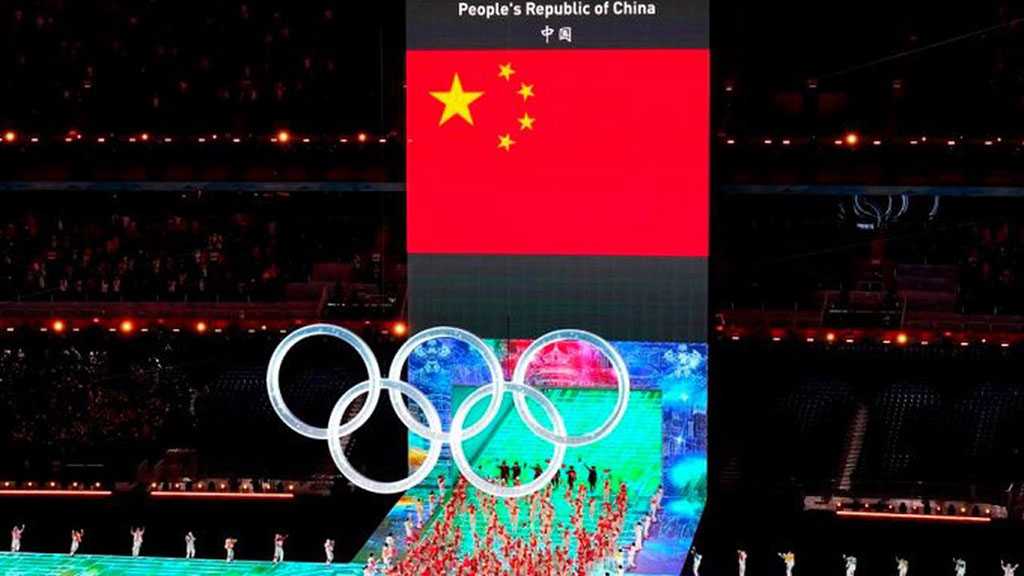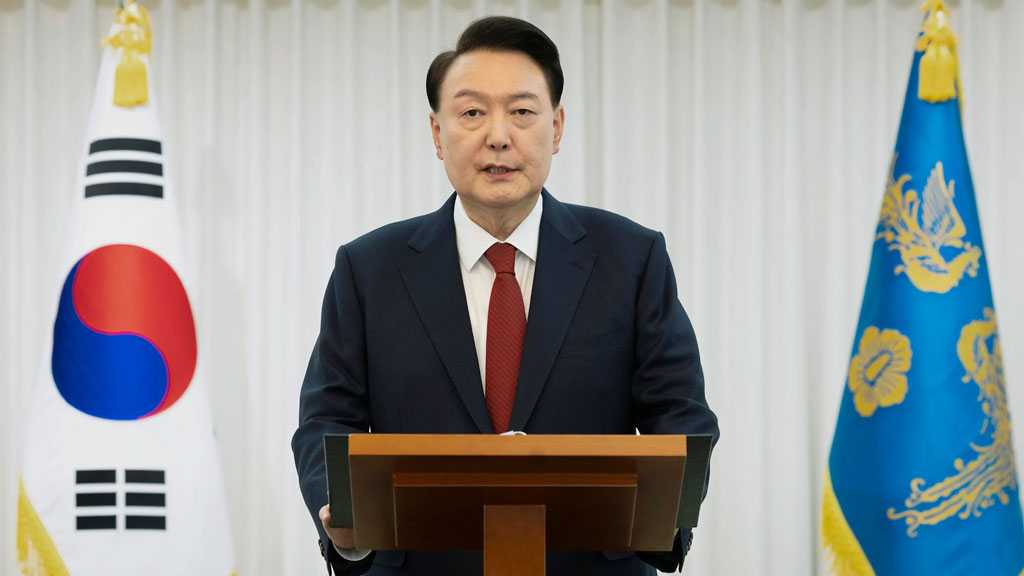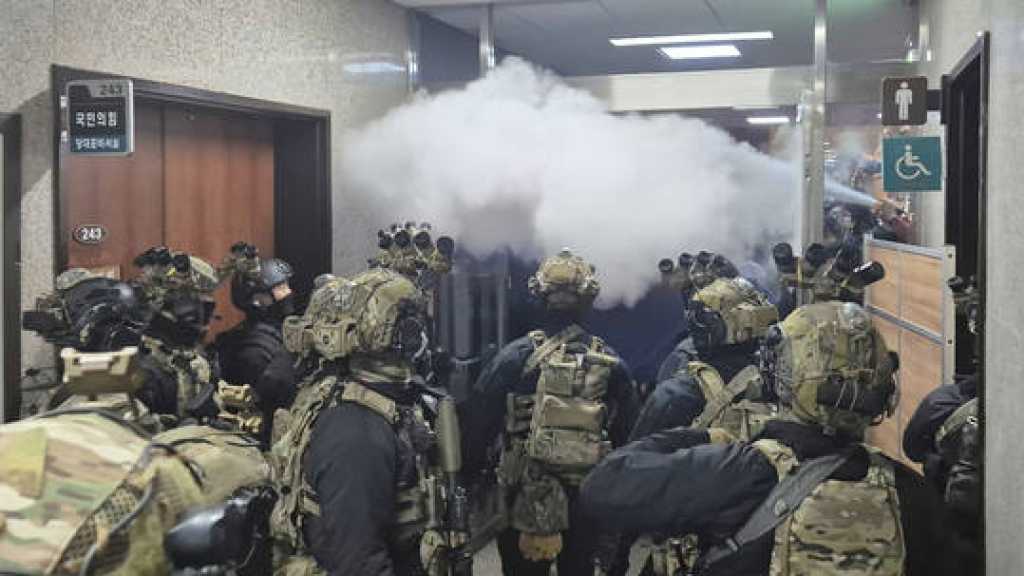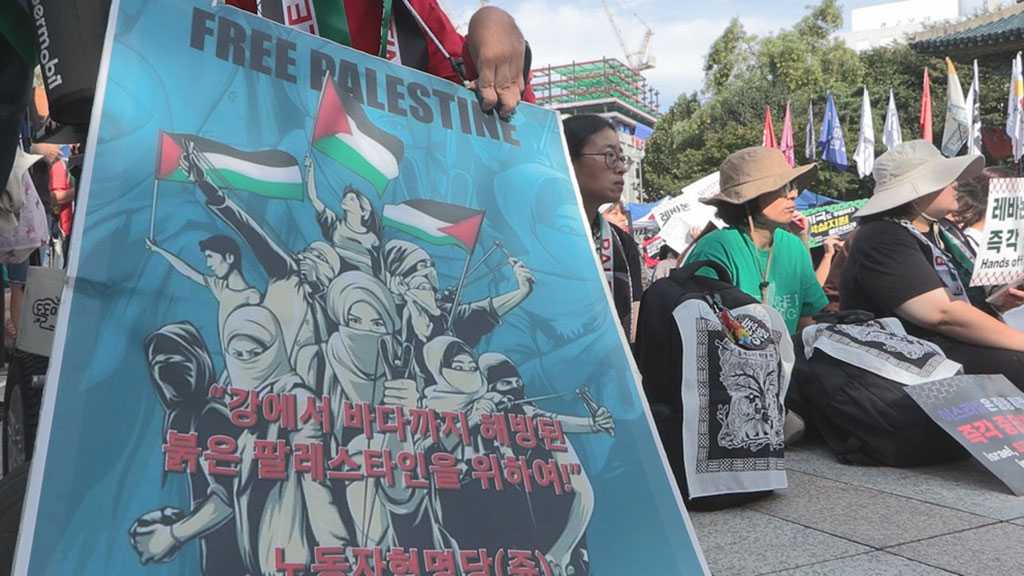
N Korea Congratulates China on Olympics, Says Together They Will Frustrate US Threats

By Staff, Agencies
North Korea has vowed to bolster cooperation with China and together “frustrate” threats and hostile policies from the US and its allies, Pyongyang’s state media quoted top officials as saying on Tuesday.
North Korea’s leader Kim Jong-un, in a message to Chinese President Xi Jinping, noted that the two countries were fighting the US “military threat” together through “strategic cooperation.”
The message was delivered to Xi to mark Sunday’s closing ceremony of the Beijing Winter Olympics, the country’s ruling party-run Rodong Sinmun said on Tuesday.
The two sides “are strengthening strategic cooperation and unity to destroy the undisguised hostile policy and military threat of the United States and its followers and defend and advance the common cause of socialism,” Kim reportedly wrote to Xi.
He praised Xi’s leadership and said China had "left an indelible trace in the history of the Olympics with its indefatigable efforts" despite "unprecedentedly severe health crisis and the hostile forces' maneuvers”.
“[Kim] expressed his will to further consolidate DPRK-China relations into indestructible relations and actively contribute to the building of a peaceful and developing world together with General Secretary Xi Jinping,” the Rodong Sinmun said in a summary of the message.
North Korea did not participate in the Beijing Games, which ended on Sunday.
In a January letter from sports authorities, North Korea blamed “hostile forces” and COVID-19 risks for its inability to attend the marquee sports event.
Kim had also sent a message to Xi at the beginning of the Games early February, congratulating China on hosting the sports event despite challenges posed by the “hostile forces” and the global pandemic.
Military cooperation with North Korea is prohibited by UN sanctions that were approved by China.
The UN Security Council Resolution 2270, passed in 2016, bars Pyongyang from giving or receiving “technical training, advice, services or assistance related to the provision, manufacture, maintenance or use” of missiles, nuclear weapons and even light weapons.
But the two countries have seen visits of military delegations in recent years as the UN resolutions do not prevent the two sides from discussing military strategy.
Late last year, Kim had expressed satisfaction with growing Sino-Korean ties in recent years.
Praising the outgoing Chinese envoy Li Jinjun's efforts to enhance relations between Pyongyang and Beijing, Kim stressed that mutual ties had entered a “fresh heyday” under the leadership in both the countries.
In 2018, Kim made his first known international trip as the North Korean leader to meet President Xi in Beijing. Xi reciprocated later with a visit to Pyongyang, the first by a Chinese leader in 14 years.
China has been North Korea’s only major ally since the two sides signed the Mutual Aid and Cooperation Friendship Treaty in 1961.
Washington has repeatedly called on Beijing, which accounts for 90 percent of Pyongyang’s foreign trade, to put more economic pressure on North Korea, amid tensions over its military program.
In January, Kim protested over US sanctions and military cooperation with South Korea, and asked officials to “examine” the issue of resuming long-range missile and nuclear testing after he imposed a moratorium on such activities in early 2018.
North Korea has been reeling under a series of UN sanctions since 2006 over its nuclear and missile programs. Pyongyang has firmly defended its military programs as a deterrent against the hostile policies of the US and its regional allies, including South Korea and Japan.
North Korea conducted seven rounds of missile tests in January, but remained largely quiet in February due to Beijing Olympics.
On Monday, it urged Pyongyang to return to dialogue, saying it was "preparing for all possibilities" with a close watch on North Korea's activities.



